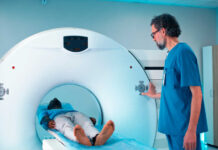
MINOCA is formally known as Myocardial Infarction with Non-Obstructive Coronary Arteries. It is a type of heart attack without the blockage of the arteries. Usually, heart attacks occur when the main coronary arteries are blocked. This results in doctors employing various methods to restore blood flow, including bypass surgery, angioplasty, or stents.
However, this is not the case with MINOCA. Prevalent among women, this type of heart attack occurs without plaque buildup in the arteries. This has also led to a lack of proper diagnosis in patients with MINOCA. Specifically, about 78% of patients have been erroneously told that the symptoms they experienced were not related to the heart. In addition, the same study conducted on 297 people indicated that 75% of patients quit their jobs due to the condition. In contrast, 70% reported significantly declining mental health and life outlook.
Types of MINOCA Heart Attacks
There are several types of MINOCA cases. These include:
- Spontaneous coronary artery dissection (SCAD): This type of heart attack is caused by a little tear in the inner lining of the blood vessel. This tear results in a blood clot forming in the lining of the artery, which disrupts blood flow and, subsequently, causes a heart attack.
- Coronary artery vasospasm: The blood vessel, under this type of MINOCA, spontaneously spasms as the name implies, blocking blood flow, just like a coronary plaque would.
- Microvascular disease: This type of heart attack causes the heart’s blood vessels to spasm intermittently. This spasm is termed “endothelial dysfunction and slows down blood flow in the microvascular system.
The Prevalence of MINOCA in Women
Reports indicate that people more likely to suffer from MINOCA include young females who are Black or Hispanic/Latino. There has also been an increase in reported cases of MINOCA in the last decade. Despite being initially coined in 1939 when two doctors indicated that the autopsies of two heart attack patients showed minimal to no signs of coronary artery disease, MINOCA has become a recent topic of interest, and for good reasons too.
The first reason is that new technologies, such as high-sensitivity troponin tests, have significantly aided medical professionals in detecting mini-heart attacks. Secondly, the stereotypes ascribed to heart attacks have shifted, as studies have now shown that not only men but both men and women can suffer heart attacks. People believe the male gender suffers from heart attacks and dismiss women with similar symptoms. Nowadays, various advocacy groups work tremendously hard to correct these wrong notions.
Symptoms of MINOCA
The many symptoms of MINOCA include:
- Cold sweats;
- Nausea, vomiting, or even gastrointestinal trouble.
- Pain in the arms, neck, and jaw and;
- Shortness of breath.
Treatment for MINOCA
Finally, doctors treat MINOCA the same way they treat other heart attacks. This includes using antiplatelet therapy, statins, ACE inhibitors/angiotensin receptor blockers, and beta-blockers.


















